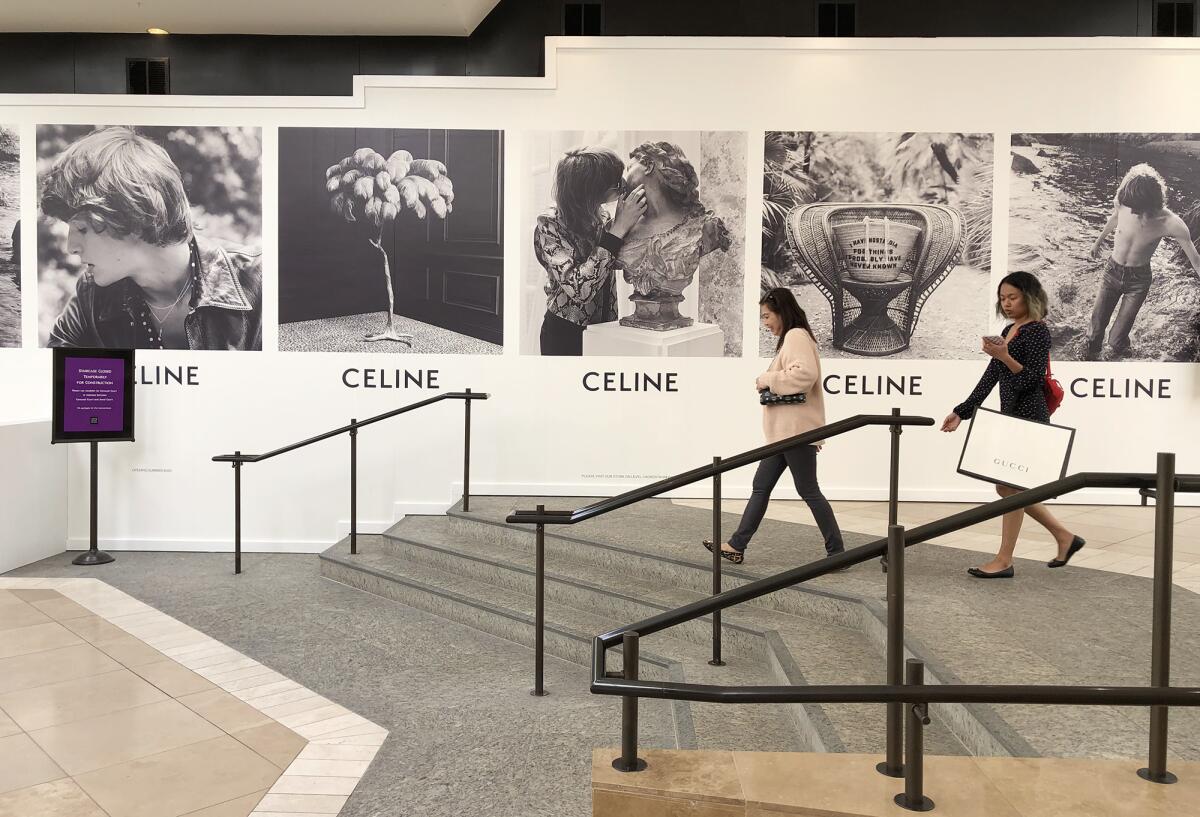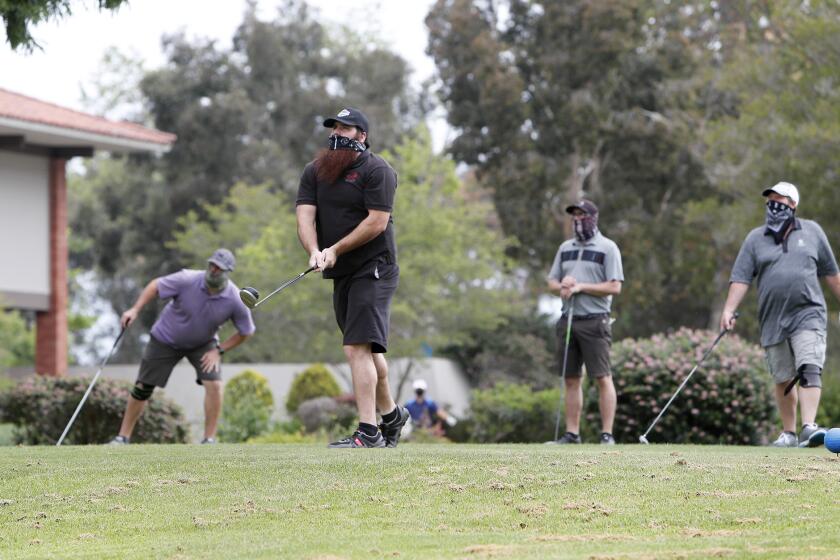Costa Mesa rolls out a roadmap to economic recovery

- Share via
As the global coronavirus pandemic stretches into its eighth week, the conversation is shifting to reopening the economy, both worldwide and locally.
Amid the burst of questions at this new stage, one persists: how?
In Costa Mesa, business leaders across various industries will be putting their heads together twice a week, starting Friday, to brainstorm an answer to a puzzle no one has experience solving. A new initiative the city organized called “reStore Costa Mesa” has called on major business leaders — in automobile, banking and finance, restaurants, hospitality and tourism, as well as representatives from the Chamber of Commerce, South Coast Plaza, the Segerstrom Center for the Arts and others — along with city staff and elected officials to design a plan to reopen the local economy.
“Kind of like a wound being surrounded by cells, we’re all coming together to surround our small businesses to help them grow back to what they were before,” said Daniel Inloes, Costa Mesa’s economic development administrator and a leader of the initiative.
The local plan expounds upon Gov. Gavin Newsom’s unveiling Tuesday of a four-phased statewide plan to loosen restrictions. The governor’s plan makes first priority establishing a financial safety net for low-wage workers and encouraging universal face masks. The second phase, which Costa Mesa is honing in on, would allow for some businesses deemed “lower risk” to reopen, such as some retail stores for curbside service, manufacturing sites and small businesses with few in-person customers.
The city’s plan defines a four-pronged structure to localize the governor’s plan for reopening businesses. The first cornerstone of “reStore Costa Mesa” will rely on third-party sources to collect data on the status of the coronavirus and the economy. The second, to “develop a legitimate and mature ‘shop local’ campaign,” Inloes said, will disseminate messaging through city channels and ambassadors across the community.
“Always think Costa Mesa local first,” said Eileen Benjamin, CEO of the nearly 500-member Costa Mesa Chamber of Commerce. “You got to help your own community — that’s where you live.”
Recreation in the city of Cost Mesa received a boost on Wednesday with the opening of the golf courses of the public Costa Mesa Country Club and the private Mesa Verde Country Club.
The third cornerstone of the reStore Costa Mesa plan will establish a call center by reassigning city staff to collect qualitative data from businesses across the city about the challenges they face to reopening. Finally, the city intends to develop a comprehensive list of businesses and their modified services.
Aside from the four cornerstones, Inloes said the city is exploring the possibility of partnering with microlenders, such as Kiva, to create more aid opportunities for small businesses. While Costa Mesa is not likely to create its own loan program — the city is losing money alongside everyone else — it could provide credibility for businesses in the community seeking help, Mayor Pro Tem John Stephens said.
“It’s creating like a bridge between capital market and people that need it who would otherwise not have access to that capital,” he said of microlending opportunities.
While discussion of reopening the economy begins to take shape, some businesses worry that government aid may be coming too late. Benjamin said she is not aware of any businesses associated with the chamber that have received federal stimulus funding yet, though some are getting approved and others are in processing.
“There’s still the majority of people waiting to hear something and they fear that by the time they are gotten to, the money will be gone,” she said. “How long can these businesses wait before they go under?”
Diane Pritchett, executive director of the South Coast Metro Alliance, said the business community is hungry for a date so they can begin their own reopening plans in earnest. Already, many industries are preparing to put new protocols in place, such as taking temperatures at the door, reconfiguring dining rooms to accommodate distancing, installing more hand sanitizer stations and requiring masks or gloves.
“I think everybody is done with this whole thing and ready to open,” Pritchett said. “They’re cautiously optimistic.”
Maurizio Cocchi never thought he would be celebrating the seventh anniversary of Vitaly Caffe, his quintessentially Italian restaurant at the Camp, in the middle of a global pandemic. But that’s the situation he found himself in Friday, as his business, which once employed more than 20 people, had dwindled down to only a couple of employees to keep up its to-go service.
As soon as the opportunity to reopen arises, Cocchi said he’ll be ready with new protocols in place.
“It’s our decision to be absolutely 100% careful in what we are going to produce and how … to avoid any potential contamination in contact or serving or talking to people,” said the restaurateur. “In any case this is something that does change restaurant life forever, probably.”
Costa Mesa took its first steps to reopening this week, when the city relaxed its restrictions on open spaces, reopening golf courses and allowing for pass-throughs in some parks. But the city — along with the rest of California — is still weeks away from its new normal.
“Even though we’re going to start to slowly reopen, make sure we only go out for essential activities, … [and] we stay physically distanced,” Mayor Katrina Foley said in a virtual town hall meeting Thursday. “You got to remember to keep that distance and that’s the way we will be able to continue to open more and more businesses.”
All the latest on Orange County from Orange County.
Get our free TimesOC newsletter.
You may occasionally receive promotional content from the Daily Pilot.









